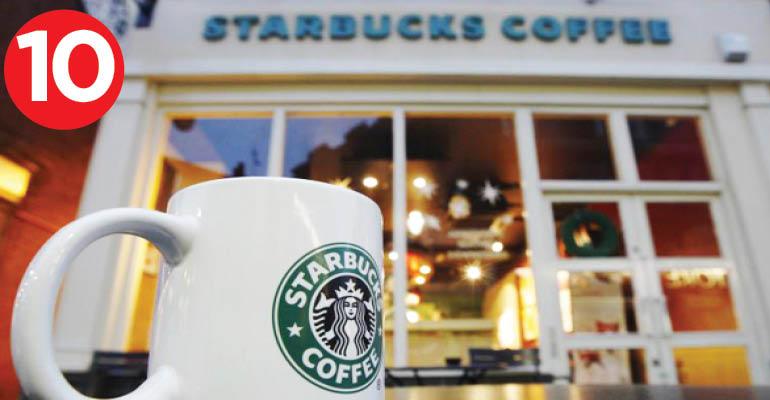- Exclusive: U.S. Mall Owner GGP Rejects Brookfield Property’s $14.8 Billion Offer – Sources “GGP Inc., one of the largest owners and operators of U.S. shopping centers, has rejected a $14.8 billion buyout offer from its biggest shareholder, Brookfield Property Partners LP, people familiar with the matter said on Sunday.” (Reuters)
- Fed Getting Ready to Hike as Retail Sales, But Not Inflation, Picks Up “The Federal Reserve is going to raise the cost of borrowing this week in a move widely anticipated by the money changers on Wall Street. But that’s not the only thing going on. The latest batch of economic mile-markers will also deliver a peek at how holiday shopping is shaping up and whether inflation is still under lock and key.” (MarketWatch)
- Media Sues for Names of Kushner Real Estate Investors “Several media outlets filed a motion in federal court Friday to obtain the identities of investors in various Kushner Cos. apartment buildings in Maryland.” (The Hill)
- Some of the World’s Priciest Real Estate Floats on Open Waters “It’s among the world’s most-expensive real estate per square foot, where the oceanfront views never tire, and where the price of entry buys access to the otherwise inaccessible—165 apartments aboard The World, a condo cruise ship. Its intensely private residents spend a third of the year, on average, gliding to the planet’s farthest reaches: Antarctica, Pacific atolls that haven’t seen a ship in two decades, and Ascension, a volcanic outcropping halfway between Africa and Brazil.” (Bloomberg)
- Commercial Real Estate Expected to Bounce Back in the Coming Year “No segment of the real estate market fell harder this year than commercial sales, a category that includes offices, multifamily residential rental buildings, land and hotel deals. Commercial developer Cushman & Wakefield projects about $32.5 billion of sales across the city by the end of the year, a nearly 44% drop from the $57.8 billion of transactions it recorded for 2016.” (Crain’s New York Business, subscription required)
- Retail Landlords Flex Muscle as Stores Close, and Starbucks, Whole Foods Emerge as Losers “Starbucks and Amazon-owned Whole Foods are the latest victims of retail landlords pushing back against companies shuttering stores and trying to bypass contractual agreements.” (CNBC)
- City Cashing in by Selling Streets, Sidewalks to Private Owners “The city is literally selling itself. Public streets and sidewalks are routinely sold to institutions and deep-pocketed real-estate interests in a little-known practice that takes them off the official City Map and transforms them into private property. The city got more than $35 million from nine street deals in the past four years, according to the Law Department.” (New York Post)
- How Some States Are Helping First-Time Home Buyers “Efforts to help potential first-time home buyers save for down payments using special tax-favored accounts have been gaining traction in state legislatures.” (The New York Times)
- Analysis: Landlords Still Offering Freebies to Lure Renters to Brooklyn’s Emerging Neighborhoods “Even in Brooklyn’s up-and-coming neighborhoods, concessions are king. At the request of The Real Deal, appraisal firm Miller Samuel crunched the numbers in seven rising sections of the borough — Crown Heights, Bushwick, Bedford-Stuyvesant, Prospect-Lefferts Gardens, Gowanus, Flatbush and Greenpoint — and found that developers and landlords in six of the neighborhoods still leaned heavily on concessions to rope in prospective renters.” (The Real Deal)
- Chicago Office—Suburbs’ Losses Are Downtown’s Gains “Chicago, America’s third-largest office market with over 470 million square feet, exemplifies the nationwide trend of companies relocating to urban areas from the suburbs as young people and knowledge workers congregate in city centers.” (Commercial Observer)
0 comments
Hide comments

